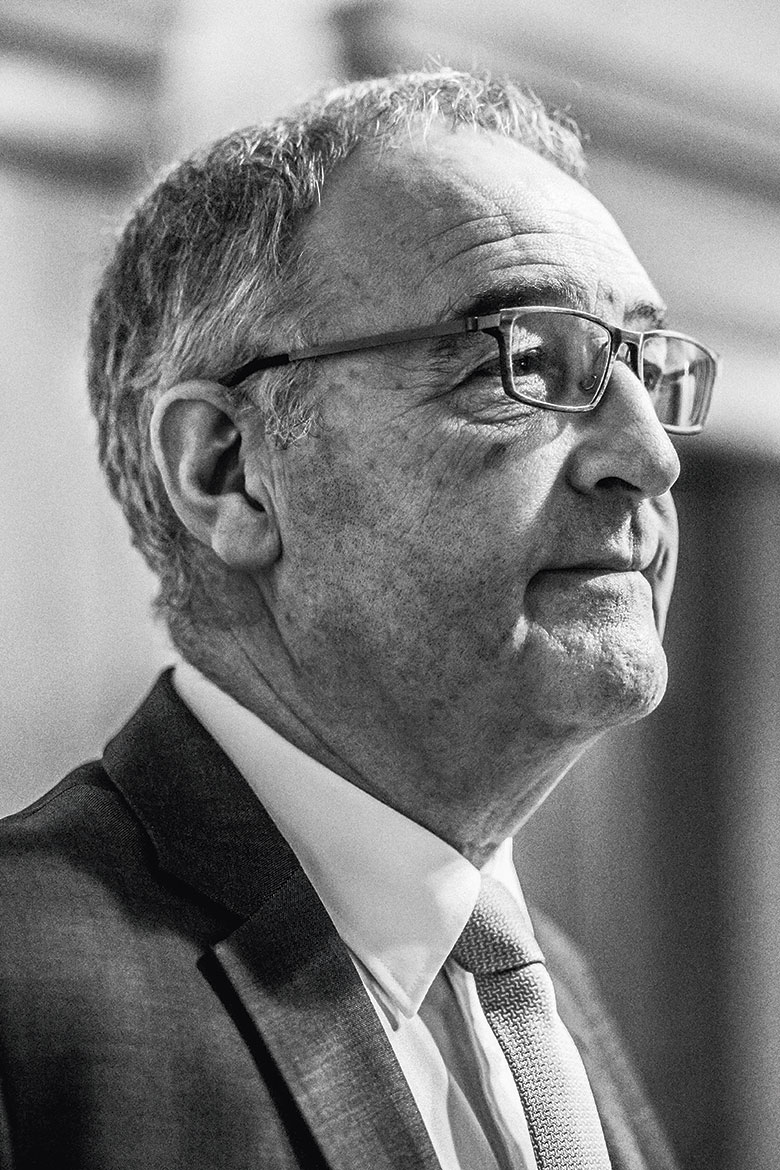SCIENCE POLICY
“There must be no limit to the international aspect of universities”
Guy Parmelin confirms that Switzerland is continuing to work on bilateral agreements with the European Union. From the helm of education and research policy, he already sees a strong basis for the dialogue between politics and science.

Image: Fabian Hugo/13 Photo
Academic circles are calling for a rethink of political science in order to reintegrate Switzerland into Horizon Europe. However, the EU has always repeated that it will not do so before it has found an institutional solution with Switzerland. How can we move forward?
Associating with Horizon Europe is the Federal Council’s clear goal for Switzerland. Naturally, for the EU to create a political link between institutional issues and our highly successful research cooperation is not something that corresponds to our own view of things. These dossiers have nothing to do with each other. The Federal Council is convinced that the economic interests of Switzerland and the EU are best secured by continuing along the tried and tested bilateral path, not through setting up a new framework agreement. Switzerland is seeking a dialogue with the EU on a broad package of issues.
Conversely, countries that are less integrated into the EU than Switzerland, e.g., Georgia, Armenia and Turkey, will become members of Horizon Europe. Is this an injustice?
It’s not for me to comment on their membership.
How do you read the tensions that arose during the Covid-19 pandemic between politics and science, particularly through the Swiss National Covid-19 Science Task Force?
The competencies and recommendations of the Task Force together comprised one of the central pillars of our response to the pandemic. That doesn’t mean that everything was always perfect. But, you know, this pandemic at times pushed everyone to their limits, including politicians and administrators at all levels of government. And we all learned something from the pandemic. Scientists, for example, learned that you sometimes need to employ a language that is more comprehensible to non-academics. And politicians learned that research works within models, and can only ever express the current state of knowledge.
Would a task force be useful for other pressing issues, e.g., the environment, sustainability or digitalisation?
With regard to ‘science for policy’, I believe that our country fundamentally has sufficient well-functioning bodies and instruments. We have interdepartmental research that is organised and coordinated by specialised offices, then we have the Swiss Science Council as an advisory body to the Federal Council, and the Swiss Academies of Arts and Sciences with their specialised committees in all branches of science and scholarship.
Do politicians need more scientific knowledge about climate change, or is it a matter of finally taking courageous decisions?
Switzerland aims to stop emitting all greenhouse gases by 2050. This was decided by the Federal Council in 2019. But whether or not we will achieve this goal, and how painful it will be to take this path, depends not least on finding innovative solutions.
Do you see political limits to research freedom? You stressed that scientists employed in the ETH Domain should not publicly criticise the government, according to the record of your visit to Eawag in October 2019.
Science and politics don’t always reach the same conclusions. That is in the very nature of things. For me, freedom of science and freedom of expression are rights that may not be infringed upon. I accordingly have no intention of commenting again on what was an internal Eawag memo on a meeting held with me.
Agroscope is one of the few research centres integrated into the federal administration. Why not make it independent, e.g., as part of the ETH Domain?
That’s a legitimate question. But Agroscope does not just conduct research and engage in knowledge transfer. It is also developing the basis for our agricultural policy and is tasked with implementing it. By developing knowledge and passing it on, it helps our agricultural sector to be cost-efficient and sustainable. Today, the field of agriculture is complemented by issues of nutrition, health and the environment, which are also based in departments other than my own. At the moment, however, Agroscope is in the process of implementing its new site strategy. Ask me that question again in 2028, once that strategy is complete!
The moratorium on genetic engineering has been in place for almost twenty years. Isn’t it time to accept that science has provided enough answers for us to make up our minds finally?
When taking such a decision, it’s not just the voice of science that’s important. That decision has to be supported by a broad cross-section of society, and a wide range of interests and opinions has to be taken into consideration. For example, what do consumers want? What do the farmers want? If new technologies can bring added value to agriculture, to the environment and to consumers without introducing alien genetic material into plants [through CRISPR genome editing – Ed.], then we should also examine whether they should be excluded from this moratorium, and if so, how.
Swiss universities attract renowned professors and a large number of students. Do you see a political limit to this international aspect?
Internationalism and international networking are of crucial importance, especially in research and teaching. So there should be no limits as such.
The SVP/UDC regularly criticises the academicisation of the country. Do you defend it when facing your fellow party members?
For many years now, tertiary qualifications have been the trend in Switzerland – not just degrees from the traditional universities, but also degrees from the universities of applied sciences and arts, and qualifications issued on the basis of federal vocational examinations. That’s a good thing. These qualifications are needed! These different educational paths shouldn’t be played off against each other. We have a need for skilled professionals with different types of knowledge and skills. That is why it is also important to me to ensure that our internationally unique, dual vocational education system remains successful.
In Switzerland, an apprenticeship could lead to a position as CEO or – like you – to becoming a Federal Councillor. Will this continue?
I am convinced that Switzerland isn’t going to give this up, which is our trump card. It provides us with an exceptional pool of skilled professionals. Our vocational training system is held in very high regard by young people, parents and the business community. There are no signs that this tradition should be brought to an end.
You did not attend a university. How do you perceive the academic world, and how do you feel you are perceived by it?
I have many good contacts with the academic world. In my professional environment, it’s important to me that my employees learn from experience. Often, one’s educational background does not play a decisive role. Different experiences and different life paths can benefit everyone in a team. That’s something that I experience every day. As for how the academic world perceives me, that’s something you’ll have to ask the people in question.
Imagine this scenario: your colleague Ueli Maurer finds you another CHF 500 million. What do you do with it?
I’d use half of it to promote innovation in SMEs, and the other half to provide young people and adults access to accredited training and further education opportunities. Innovation and career prospects are an important success factor for both our economy and our society. Unfortunately, your scenario is unlikely to come about in the next few years. The federal government will have to cope with debt and high additional expenditure on account of the Covid-19 pandemic and the consequences of the war in Ukraine.
You are going on a three-day cruise on the Rhine. Which scientists do you invite?
Our most recent Nobel Laureates: Kurt Wüthrich, Jacques Dubochet, Michel Mayor and Didier Queloz. We would use our long journey to discuss fundamental questions, such as what constitutes our existence, and what can ultimately hold the world together – both today and in the future.




